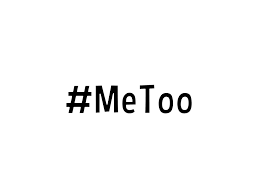
In response to the #MeToo movement, companies have begun taking an increased role to prevent and police sexual harassment in the workplace. Protecting employees from any form of sexual misconduct or harassment should undoubtedly be the primary goal of these efforts. However, any proactive measures cannot guarantee that no incidents will occur, and companies’ future interests will be at risk. Consequently, counsel and risk managers should look to employment practices liability insurance (EPLI) which can provide coverage and pay for the defense of such claims. EPLI policies provide coverage for many types of the claims employees make against their employers that are not covered by workers compensation policies, including sexual harassment.
What is an EPLI Policy?
EPLI policies are generally sold on a claims-made basis, which means claims made against your company during the policy period are covered. There are some wrinkles to consider, however, if one is buying such a policy for the first time, or perhaps changing carriers for better terms or coverage. Most claims-made EPLI policies have a retroactive date, which provides that claims made during the policy period based on acts that took place before the “retro date” are not covered. When buying coverage new, negotiate for the earliest retro date you can get, taking into consideration relevant statutes of limitation. When switching carriers, one option sometimes available is to purchase “tail coverage” under the expiring policy that extends it to cover claims in the future, as long as the underlying acts took place before the policy expired. This can allow the new policy to have a retro date simultaneous with the policy inception. Also, consider giving notice under the expiring policy for potential claims that have not yet been made. Some policies require this. Others permit it at the policyholder’s discretion. Be careful when answering any questions on a policy application regarding known or potential claims, as this can be a minefield.
Coverage Basics
EPLI policies usually cover claims for discrimination on the basis of race, national origin, religion, sex (including pregnancy), age, or disability, including related claims for harassment. Policies commonly exclude claims arising under workers’ compensation laws and policies, and claims under federal labor laws unrelated to discrimination or harassment, such as union-related laws, the Worker Adjustment and Retraining Notification Act, the Fair Labor and Standards Act, the Employment Retirement Income Security Act and COBRA. Policies are not uniform, so read them carefully. Moreover, even if a policy excludes one of the above types of claims, it might be possible to have it added by endorsement.
One issue is the extent to which many of the claims purportedly covered under EPLI policies are insurable. Based on public policy, states often place limits on the extent to which intentional acts may be insured, and claims of discrimination or harassment can often include allegations of knowing and intentional acts. Thus, a company should consider carefully when purchasing an EPLI policy which state’s law likely will apply and whether that state has spoken on the public policy.
Definition of a “Claim”
A policyholder usually will receive notice of an employment claim in one of four ways:
- Oral complaint from an employee.
- Written notice from a claimant.
- Written notice from an agency such as the Equal Employment Opportunity Commission.
- Receipt of a lawsuit.
Whether any or all of the above will trigger coverage under a particular policy will depend upon the policy’s “claim” definition. This definition can affect when notice is due, when defense costs are covered, and other secondary but important matters.
Ideally, the definition will include provisions that the demand can be for relief other than monetary damages, including “reinstatement, reemployment or re-engagement.” Such a change does more than effect a change in when coverage is triggered — it can create a much broader substantive coverage grant.
Defense Costs and Related Issues
EPLI policies commonly require the insurance company to pay the costs of defending claims. Disputes may arise over whether the insurance company is required to advance defense costs, or reimburse the policyholder after a claim is resolved. Another common issue concerns the allocation of defense costs among covered and uncovered claims. Whether the insurance company may pay only costs associated with covered claims may depend upon the wording of the policy as well as the applicable state law
Fraudulent or Malicious Acts Exclusions
Most EPLI policies contain an exclusion for deliberate and seriously wrongful acts. The following example states that the insurance company will not be liable for any claim:
arising out of, based upon, or attributable to the committing in fact of any criminal or deliberate fraudulent act.
This exclusion seeks to preclude coverage for fraudulent and criminal acts, and omits an important protection for policyholders. Because so many claims contain such allegations, it is now common for these exclusions to contain an exception that provides that the exclusion applies only “if a judgment or other final adjudication adverse to the Insured establishes such a deliberately fraudulent act or omission.” This clause ensures that a policyholder who faces allegations of fraud will have its defense costs paid, and will only lose coverage if the fraud is proved. Another important exception provides that the criminal or fraudulent act of one policyholder will not be imputed to other policyholders.
Conclusion
Although there are many hurdles and prerequisites to securing insurance coverage for sexual harassment, employment discrimination, and other employee claims, a company’s insurance policies are a critical source for financial support against such claims. Should your company be faced with a claim related to its employment practices, immediately notify, in writing, all insurance companies that may possibly provide coverage for that claim. Forward all relevant information regarding the claim to the insurance company. And if the insurance company denies the claim, do not take no for an answer.





